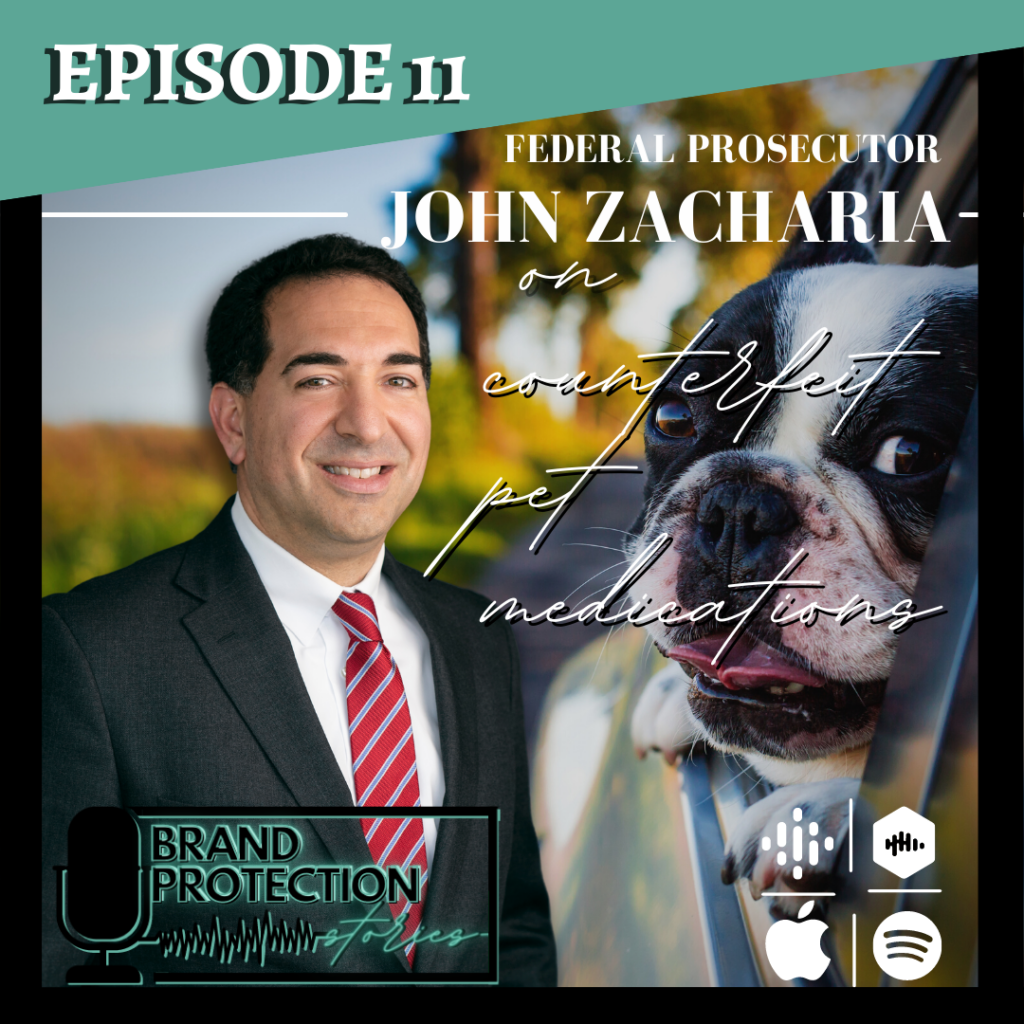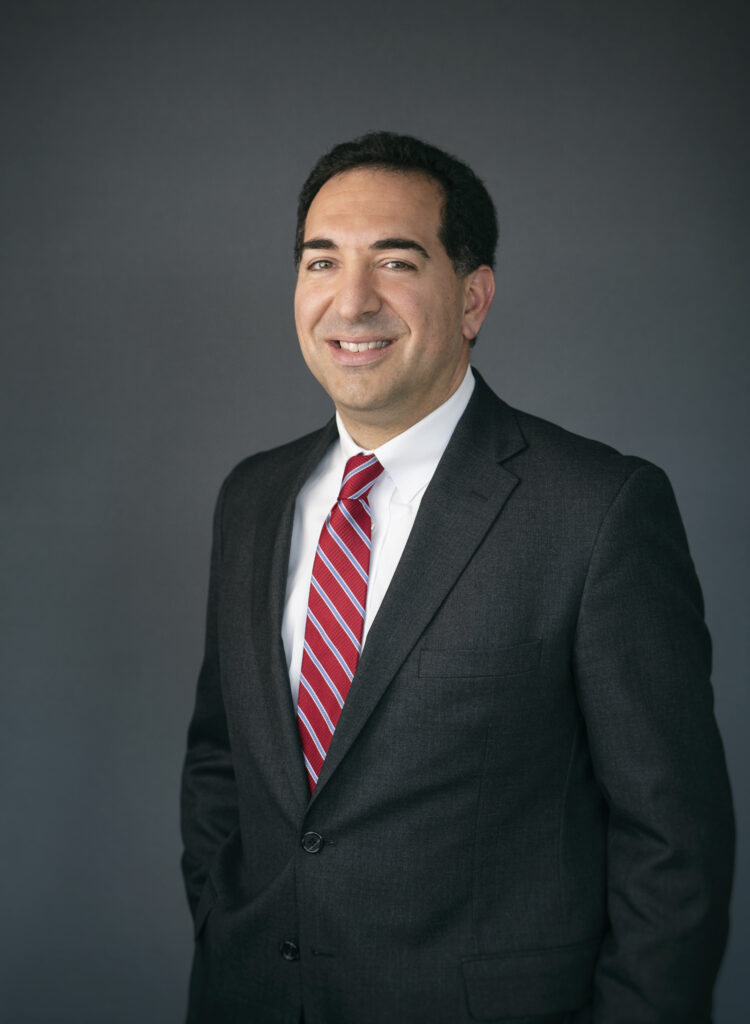Brand Protection Stories Podcast
EPISODE 11

Counterfeit Pet Medications
Former Department of Justice prosecutor John Zacharia takes us through a case involving counterfeit pet flea and tick medications. Medications which ended up at a major U.S. retailer infiltrating a legitimate supply chain. These products included counterfeit and gray market medications where the labels and packaging had been counterfeited with the intent to deceive others into believing that the product was authorized for sale in the U.S. Cooperation is the key in this Brand Protection Story episode and vital to protecting the health and safety of our beloved pets.
John Zacharia
John H. Zacharia is a Professorial Lecturer in Law at the George Washington University School of Law and the Founder of Zacharia Law PLLC, a law firm dedicated to helping clients combat cyber theft and protect and enforce their intellectual property (IP) rights. For over two decades, John has worked at the forefront of the legal issues confronting intellectual property owners, becoming one of the leading subject matter experts in intellectual property criminal law in the country. Previously, as the Assistant Deputy Chief for Litigation of the Computer Crime and Intellectual Property Section (CCIPS) of the United States Department of Justice’s Criminal Division, John was responsible for supervising all of the IP and cybercrime prosecutions by the Section’s 40 attorneys. In his 12 years at CCIPS, John became one of the most experienced federal prosecutors of IP crime in the country.
Notably, John prosecuted and obtained jury verdicts in one of the largest counterfeit goods prosecutions in U.S. history, and he successfully argued for and defended the convictions before the U.S. Court of Appeals for the Fourth Circuit. John also successfully prosecuted the leaders of the “IMAGiNE” group, the most prolific English language movie piracy group operating on the Internet from September 2009 to September 2011.
In addition, John secured a number of “first of its kind” convictions, including the first ever conviction and sentencing of a cyberlocker operator, and the first-ever prosecution and conviction for criminal copyright infringement of mobile device applications (“apps”). John also obtained the first-ever maximum sentence for felony copyright infringement, as well as the first-ever maximum sentence for a felony related to copyright infringement online. John also defended the United States as co-counsel against the first-ever challenge to the constitutionality of the Stored Communications Act before the U.S. Court of Appeals for the Sixth Circuit sitting en banc.
John is a globally recognized expert in IP law and policy, having worked directly with and trained law enforcement officials from over sixty countries and presented to a variety of international for a across the globe, including the European Union, Interpol, Asia-Pacific Economic Cooperation (APEC) conferences, Association of Southeast Asian (ASEAN) conferences, and the World Intellectual Property Organization (WIPO). Before joining CCIPS, John was a trial attorney with the Federal Programs Branch of the Justice Department’s Civil Division, where he personally handled several significant IP cases of first impression, including cases in which he successfully defended against challenges to the constitutionality of the Copyright Act and the Digital Millennium Copyright Act.
John has authored and co-authored several articles and studies in the area of IP. Most recently, John co-authored an article entitled “Congress’s Proposed E-Commerce Legislation for Regulation of Third-Party Sellers: Why It’s Needed and How Congress Should Make It Better” (published by the University of California-Davis Business Law Journal) and co-authored a study entitled “International Judicial Cooperation in Intellectual Property Cases” (published by the European Union Intellectual Property Office).
John is also a board member for The Brand Protection Professional (BPP), and he has authored several articles for The BPP, including “Trade Secret Theft in Academia: Brand Owners Are Not the Only Ones Who Noticed” and “The Supreme Court Just Made Restitution Harder for Brand Owners: Here’s What They Can Do About It.”
